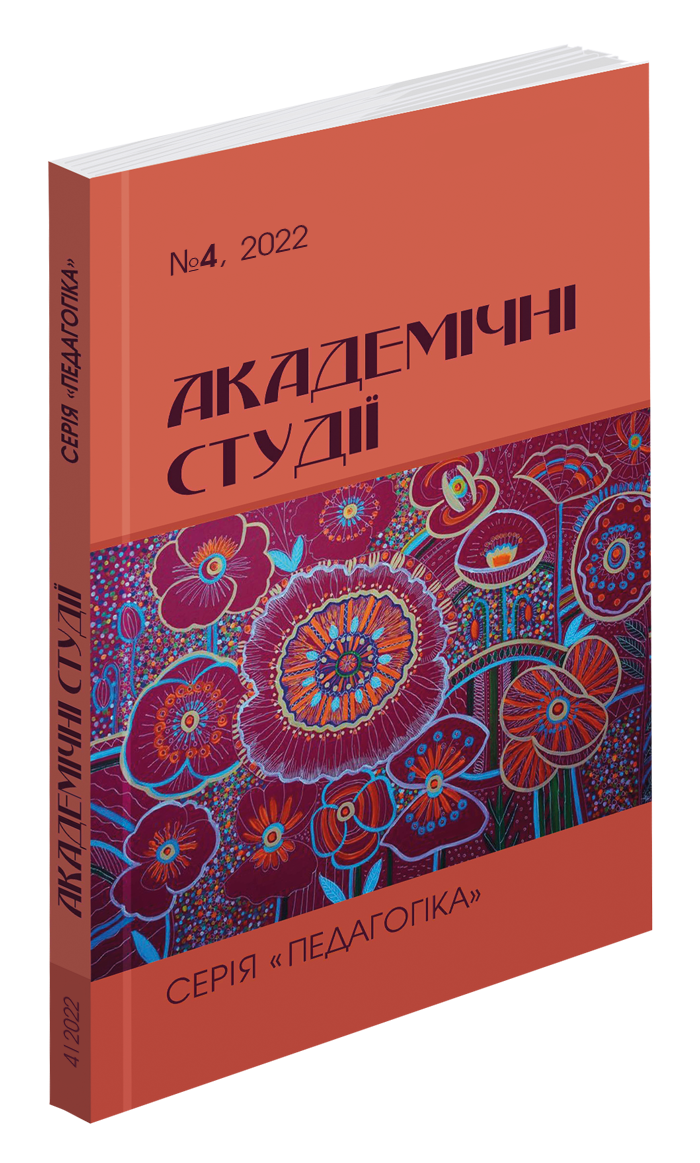Abstract
The article investigates theoretical and methodological basis to increase the effectiveness of using foreign language for professional business communication in non-languages specialized higher educational institutions. This will contribute to the guidelines forming in the field of communication. The use of collective forms of organizing cognitive activity at the stage of preparing students for professional communication contributes to the effectiveness of achieving the goal. An important aspect of preparing students for communication is the process of forming their social values in the field of business communication: attitude to each partner of communication as an aimed user, not as a means; interest in the process of communication, not just its result; attitude to communication as a dialogue, not a monologue; tolerance to the ideas of partners; orientation to not only receive in the communication process, but also to give as much as possible to the partner. The social attitudes forming in the sphere of communication becomes real only when it is carried out in the course of the entire educational job of the entire higher educational institution, directly related to the attitudes that teachers implement in their communication with students, that is, in the process of pedagogical communication. The method of communicative approach to learning a foreign language, in particular, for its use in the professional sphere, is considered to be one of the most effective. Namely, the emphasis is provided on collective forms of students’ cooperation, such as role-playing, group discussions, socio-dramas. Due to socio-drama it is possible to practice grammar (cognitive basis of communication skills) when the need to respond appears and the ability to produce grammatical sentences in the process of communicative interaction follows. The essence of this means of teaching communication is that the communicative task is solved by the participants of the role-playing game through improvised acting out of a certain situation, in particular from the real professional sphere. The ability to “read” non-verbal movements of a partner-interlocutor is also extremely important from a professional point of view for a specialist. It was experimentally proven the effectiveness of implementing in foreign language classes the use of both: text and audio materials, as well as collective forms of students’ cooperation. We also used and verified the significance of collective forms. They were aimed at strengthening the development of business and professionally oriented speech.
References
Безпалова, Н.П, Книшевицька, Л. В. Рольова гра на практичних заняттях з іноземної мови за професійним спрямуванням для студентів немовних спеціальностей у ВНЗ Наукові праці Кам’янець-Подільського національного університету імені Івана Огієнка. Філологічні науки (49). 2019. С. 55–59. ISSN 2309-9771 https://elibrary.kubg. edu.ua/id/eprint/28346/1/N_Bezpalova_L_Knyshevytska_NPKPNU_FN_49.pdf
Вишнякова, Г.О. Рольові ігри – креативний метод вивчення іноземної мови. In: Актуальні проблеми навчання іноземних студентів. Матеріали XХIІ Всеукраїнської науково-практичної конференції. ДЗ «Дніпропетровська медична академія МОЗ України», Дніпро. 2020. С. 12−13.
Загальноєвропейські Рекомендації з мовної освіти: вивчення, викладання, оцінювання. К. : Ленвіт, 2003. 273 с.
Капська А.Й. Професійна підготовка студентів педагогічних інститутів до виховної діяльності: Зб. Наукових статтей. Інститут змісту і методів навчання. К. : 1996. С. 12−18, 92−96.
Культура педагогічного спілкування як фактор гуманізації сучасної освіти. Суми, 1996. С. 59−118., 203–225.
Чорній В.Я. Формуваня готовності до професійного спілкування майбутніх фахівців банківської справи: монографія / В.Я.Чорній. К. УБ С НБУ, 2013. 342 с.
Di Pietro, R.J. (1983). Scenarios, discourse, and real life roles. In J.W. Oller, Jr., & P.A. Richard-Amato (Eds.), Methods that work: A smorgasbord of ideas for language teachers (pp. 226-238). Rowley, MA: Newbury House.
Harmer J. The Practice of the English Language. Edinburgh: Pearson, 2007. 447 p.
Kyseliuk N., Hubina A., Martyniuk A., & Tryndiuk V. Non-verbal means of communication in the representation of the emotional state of joy in modern English fictional discourse. Cognitive Studies–Études cognitives. 2020. URL: https://doi.org/10.11649/cs.2284
Robin Scarlcella, Elaine S. Andersen, Stephen D.Krashen Developing Communicative Competence in a Second Language. Heinle & Heinle. 1990. 356 p.
Силабус навчальної дисципліни «Ділові комунікації (перша іноземна мова, англійська, рівень B2)» для здобувачів першого (бакалаврського) рівня вищої освіти за спеціальностями: 07 «Управління та адміністрування», 073 «Менеджмент» IV курсу економічного факультету. ЛНУ ім. І. Франка. Львів. 2021. 5 с. http://lingua.lnu.edu.ua/ course/dilovi-komunikatsiji-anhlijska-mova-dlya-studentiv-ekonomichnoho-fakultetu

